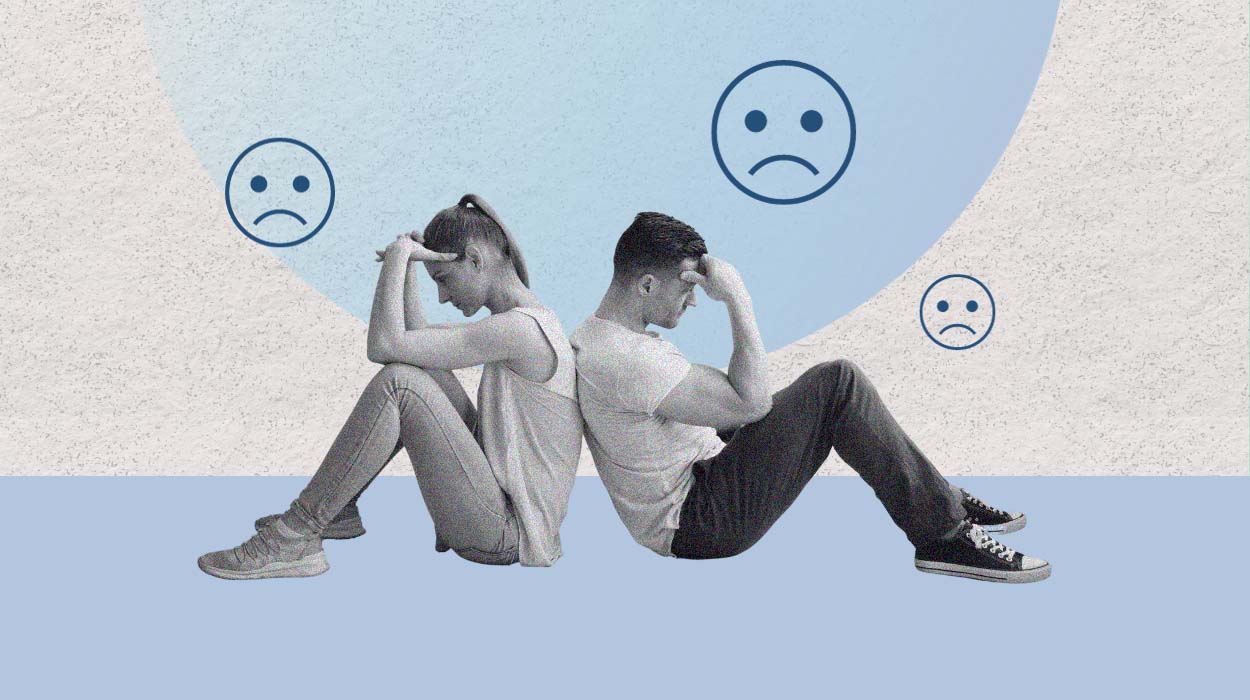 Expert's opinion
Expert's opinion
Expert's opinion
The article is a subjective view on this topic written by writers specializing in medical writing.
It may reflect on a personal journey surrounding struggles with an illness or medical condition, involve product comparisons, diet considerations, or other health-related opinions.
Although the view is entirely that of the writer, it is based on academic experiences and scientific research they have conducted; it is fact-checked by a team of degreed medical experts, and validated by sources attached to the article.
The numbers in parenthesis (1,2,3) will take you to clickable links to related scientific papers.
Is Major Depressive Disorder A Disability 2024? Here’s The Answer

Clinical depression is a serious mental disorder that affects millions of people all over the world. It’s a state of mind that goes beyond simple sadness. Sleeping, remembering, and eating may all be negatively impacted by depressive symptoms.
The World Health Organization reports that more than 280 million[1] people worldwide suffer from depression, making it the leading cause of disability among family members. Depression that is severe and chronic is known as major depressive disorder or MDD.
But is major depressive disorder a disability? Are depression and anxiety considered disabilities?
Read on to learn more about the legal and medical definitions of depression as a disability, as well as your legal protections, options for obtaining disability benefits, and requests for reasonable accommodations.
In addition, we will investigate funding options and supplemental security income for depressed people as well as provide some guidance on where to get professional help for those with depression and their loved ones.
Is Major Depressive Disorder A Disability?
Major depressive disorder is classified as a mental health disability if it severely hinders an individual’s ability to function properly in everyday life. According to research, MDD affects millions of people globally.
Persistent depressive symptoms describe the mental illness, with bouts spanning weeks to months. It may make daily life difficult by instilling feelings of despair, pessimism, and self-doubt.
When Is Major Depressive Disorder Considered A Disability?
Whether or not MDD is a disability is determined by the way we define disability. The Americans with Disabilities Act, or ADA, defines disability as a physical or mental health condition substantially limiting one or more major life activities. This term, which is meant to be comprehensive, encompasses a wide variety of mental disorders, from moderate to severe, including MDD.
A person who suffers from MDD must produce proof that their disease substantially impairs one or more fundamental everyday functions in order to achieve disability classification under the ADA. These key life activities might include participating in social contacts or taking care of one’s own self-care needs. In order for the condition to be regarded as terminal, it is required that it be predicted that it will last for a minimum of one year.
It is essential to understand that just because you have been diagnosed with MDD does not mean you are eligible for disability benefits. The individual’s typical activities must be significantly limited due to the severity of the condition. For this reason, a patient’s treatment history or mental health practitioner’s records might be used as evidence to support this claim.
What Are The Rights?
According to the ADA, a person is eligible for certain accommodations if it’s determined they have MDD. For instance, persons have the legal right to seek adjustments at their place of employment that would make it feasible for them to carry out their job tasks even though they have a disability. Flexible working hours, decreased labor, and medical leave are some of the accommodations that fall under this category.
In addition, employers are expected to make appropriate adaptations for workers who have MDD, provided that doing so does not place an excessive strain on the company in terms of either its financial or administrative resources.
This suggests that a company may need to make a few simple alterations to the workplace in order to accommodate an employee who suffers from MDD so that the individual may continue to perform their job duties.
Patients who suffer from MDD are afforded the same level of legal protection from discrimination on the job. Under federal law, it’s unlawful to discriminate against current or prospective workers or applicants on the basis of a disadvantage, including MDD. This protection extends to employment-related decisions like hiring and firing, promotions, and everything else that goes along with a job.
Depression Disability Benefits & How To Apply
It is possible for a person diagnosed with MDD and unable to work directly due to their condition to be eligible for benefits under the Social Security Disability Insurance program. You should be aware that to get benefits from the Social Security Administration, also referred to as the SSA, you will first need to provide evidence that the condition has rendered you unable to maintain gainful employment.
In other words, to be eligible, you must have an MDD condition that has seriously hampered your ability to work for at least a year.
The SSA takes into consideration a variety of criteria before determining whether or not to award disability benefits to an individual who has applied for them. Age, professional experience, mental capabilities, and one’s medical history are all crucial factors to consider.
It is essential to keep in mind that applying for disability benefits on your own may be difficult and time-consuming. You should consider the assistance of an expert disability attorney or advocate for fast processing.
Those diagnosed with MDD and unable to work due to the condition may discover that getting a disability claim is a lifeline if approved. However, it’s crucial to note that these benefits don’t provide a considerable amount, and they may not come close to paying an individual’s whole cost of living.
Financial Assistance Programs For Depression
Disability benefits are only one of the many ways that individuals with MDD may be eligible for assistance with their financial situation. Even though medication, mental health therapy, and other treatments for depression symptoms may be financially out of reach for some people, there are programs to help those with financial needs.
One initiative, known as the Patient Assistance Program, or PAP, assists persons with low incomes in obtaining the necessary medication at a price that is either lowered or waived entirely. Several pharmaceutical companies’ websites feature PAP apps for various medications.
Also, those who need depression treatment but don’t have the financial means to pay for it may get assistance through the Mental Health America Financial Assistance Fund. The funds might be used for things like therapy, medication prescribed by a doctor to treat the condition or other mental health conditions.
Additionally, those who have been given a diagnosis of MDD and who satisfy the qualifying prerequisites are eligible to make an application for help via Medicaid and the Supplemental Nutrition Assistance Program, or SNAP. These programs may provide low-income people with financial help, which allows them to purchase necessities like food and medication even if their income is limited.
The Bottom Line
If you’ve been wondering if you can get disability benefits for depression, you now have the answer. Clinical depression is a very severe medical condition that substantially negatively influences many individuals’ lives. When a person’s capacity to engage in regular day-to-day activities is significantly hindered due to a chronic depressive illness, we refer to this as a disability. Suppose a person with mental illness cannot work due to their disease.
In that case, they should be able to present adequate medical documentation and confirmation to qualify for disability benefits from the SSA as well as other financial support programs.
It would be beneficial for those experiencing difficulty controlling their MDD to seek the counseling and care of specialists. Treatment options may include adjusting one’s diet, participating in talk therapy, taking medication, or engaging in alternative therapies.
Overall, people with major depressive disorder can live full lives provided they get the proper therapy and care for their condition.
+ 1 sources
Health Canal avoids using tertiary references. We have strict sourcing guidelines and rely on peer-reviewed studies, academic researches from medical associations and institutions. To ensure the accuracy of articles in Health Canal, you can read more about the editorial process here
- World (2023). Depressive disorder (depression). [online] Who.int. Available at: https://www.who.int/news-room/fact-sheets/detail/depression#:~:text=Approximately%20280%20million%20people%20in,due%20to%20suicide%20every%20year.



